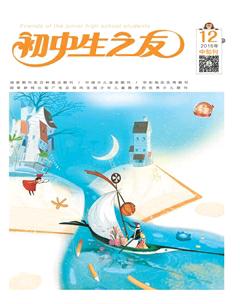双语话中国历史名人:勾践
思年
King Gou Jian of Yue (reigned 496 B. C.~465 B. C.) was the king of the Kingdom of Yue (present-day Shanghai, northern Zhejiang and southern Jiangsu) near the end of the Spring and Autumn Period, named Si ɡoujian.
越王勾践,公元前496年至公元前465年在位。勾践是将近春秋末期的越王,名叫姒勾践。越国在现在的上海、浙江北部和江苏南部。
Gou Jian was the son of Marquess Yun Chang of Yue. He was defeated and captured by King Fu Chai of Wu of the neighbouring State of Wu.
勾践是越国允常侯的儿子,曾被邻国吴国的国王夫差打败。
After three years of servitude and humiliation with his wife in the State of Wu, he gained the trust of King Fu Chai who eventually allowed him to return to his state where he resumed his rule and initiated major reforms.
勾践与妻子在吴国忍辱负重三年后,获得了吴王的信任并被放回越国。回国后勾践恢复了统治,进行了一些重要的改革。
He soon appointed skilled politicians, such as Wen Zhong and Fan Li, as advisors to help buildup the kingdom.
他很快启用像文种和范蠡这样的政治家辅佐治国。
During this time, his ministers also worked to weaken the State of Wu internally through bribes and diplomatic intrigue.
同时,勾践的大臣还通过贿赂和外交阴谋从内部削弱吴国。
All the while ruling his kingdom, Gou Jian never relished in riches as a king, but instead slept on sticks and eating food suited for peasants.
在治理国家期间,作为一个国王,勾践从未享受富裕的生活,而是睡在柴火上,吃农民吃的食物。
This way, he could remember his humiliations while serving under the State of Wu.
通过这样的方式,勾践时刻不忘在吴国受到的耻辱。
There is a Chinese idiom, “Wo Xin Chang Dan” (literally meaning “sleeping on sticks and tasting gall”) coming about because of this and his perseverance.
由此产生了一个汉语成语“卧薪尝胆”。
After ten years of economic and political reforms, his state at last became powerful enough to challenge and eventually annex the State of Wu in 478 B. C., where King Fu Chai was forced to commit suicide.
十年的政治和经济改革之后,越国最终强大了起来。最后,越国于公元前478年打败吴国,吴王夫差被迫自杀。
Later, King Gou Jian met the dukes in Xuzhou and gained hegemony among the states.
后来,勾践在徐州会见各诸侯国国君成为霸主。

